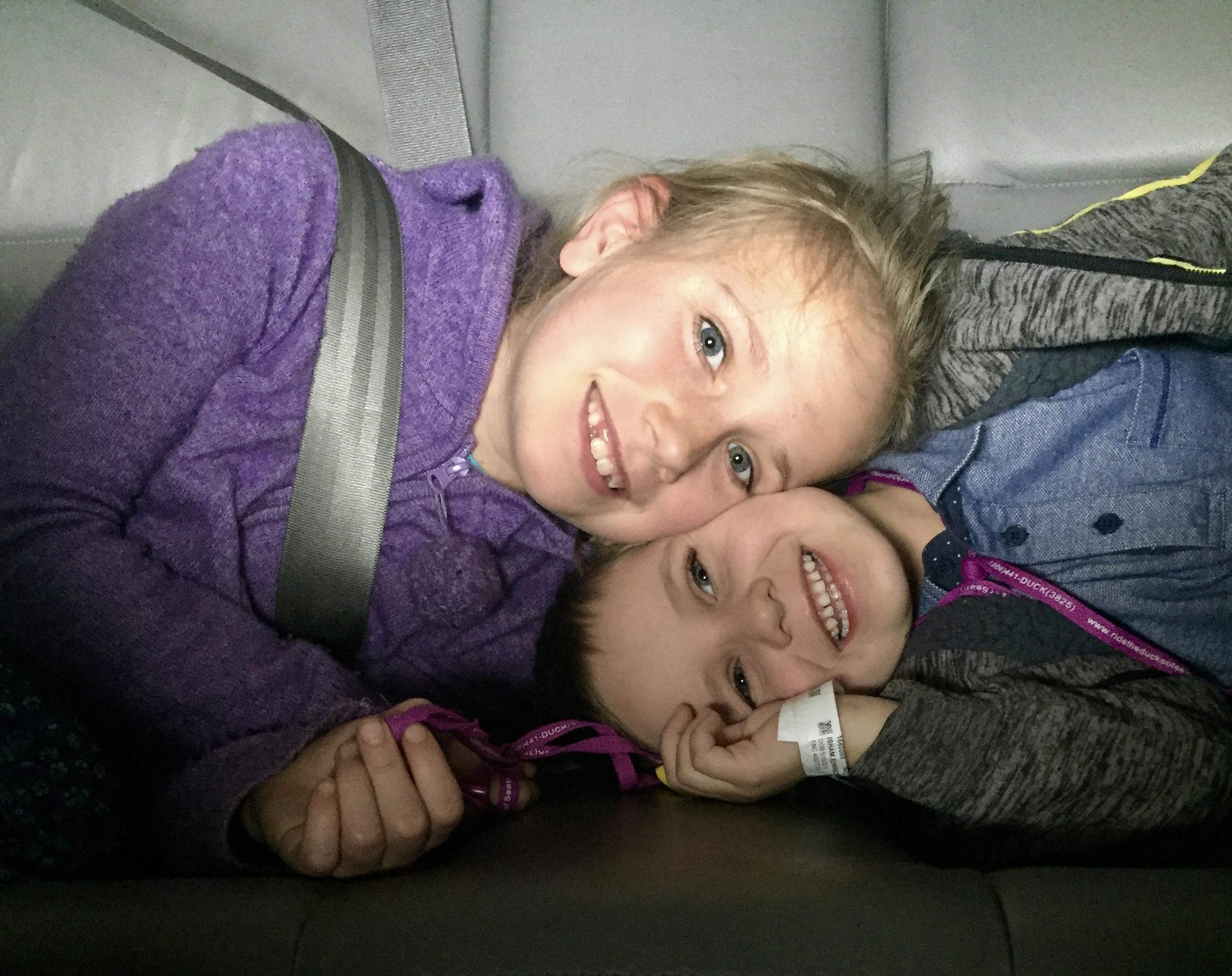Grief: the Reality
What is it like living without a child who was an essential, pivotal part of our family - our core unit? … without the child our lives revolved around, by virtue of his illness? Without the child I carried, bore, breastfed for years; the child we carried, soothed and settled for hours, woke to every night, held, cried for, cuddled, played and laughed with, fed, taught, disciplined, and earnestly prayed for?
Grief is described as “broken-heartedness”, “all-encompassing intense sorrow with emotional, physical, cognitive, behavioural, social, cultural, spiritual and philosophical dimensions”. And they say there are 7 stages – but they don’t say how long it takes to get through Stage 1: Shock and Denial, let alone Stage 2: Pain and Guilt.
Our grief and immense loss feel like a boulder – a heavy, unrelenting weight tied around our necks with a rope of sharp, spiky bristles, from which we can’t ever escape or seek reprieve other than temporary, shallow distraction. And this is a bittersweet burden that we, and others bereaved, carry; for to wish away this burden would diminish the tremendousness of their existence and our love.
- Reading stories to our remaining children and engaging in light-hearted play is like walking up a small hill with the boulder on our shoulders.
- Finding the energy to start housework, and then not withering from exhaustion, or curling up in a ball whenever confronted with a Ned treasure is like walking up a mountain with the boulder in our arms.
- Going for a therapeutic run when I’m feeling emotionally vulnerable, trying to breathe past the volcanic lump in my throat, is like running up a mountain rolling the boulder ahead of me.
- Getting out of bed every morning, after yet another interrupted night, and beginning the herculean list of daily tasks is like leaping hurdles while carrying the boulder.
- Being around groups of friends with their healthy children, especially those with children Ned’s age, and trying to be lighthearted or carry on a regular conversation is like trying to lift the boulder over and over again.
- Awakening from deep sleep or rousing from our numb trance, reminding ourselves that our darling older son is gone, is like being pummelled in the stomach with boulder after boulder.
- Attempting to plan anything ahead, or formulate a schedule, or focus on a single cognitive task for longer than a few minutes at a time is like trying to lift and carry the boulder, as well as a screaming baby, squirming toddler, and the groceries.
- Driving near or walking past the hospital and its carpark is like trying to untie the piercing, bristly rope from around my neck with the boulder ever pulling.
- Commiserating with others over their crisis is like trying to pause, pick up another large boulder, and carry it at the same time, all with patience and a smile.
- Blending into a group or crowd of parents discussing their children, or attempting small talk with passers-by is like trying to make the boulder invisible and hide the wounds.
- Trying to push ourselves at usual pace; trying to not allow our heightened fatigue and irritability to cloud our judgement, or our lowered tolerance and patience to affect our capabilities is like trying to pretend we’re not puffed or exhausted from hauling the boulder up the hill.
- Sleeping is like trying to rest and nurse our aching muscles back to function, with the boulder still attached.
- Attempting to keep up with the expectations of others who have not been through such heart-wrenching trauma, or the world in general is like trying to compete when we’re running up a hill, dragging a boulder, while our competitors are running free, over flat terrain. We are not on equal footing with those who have not lived with cancer, palliated or lost their child.
Still, I can’t sleep through the night; I have to keep myself busy to distract my mind from the wearying emptiness and gnawing unease. Still, we can’t walk past Ned’s grade 1 classroom or go to church without feeling flattened by emotion, we can’t look up to our view of a white-peaked Mount Wellington without reminiscing about how much it would’ve excited our snow-loving Ned, and we can’t thank God for Ned’s life here without weeping with bitterness at his premature departure.
But in Ned’s absence, I wouldn’t want to be without the wound, or eventually the scar. Despite Eleanor’s pain being so profound, I don’t really want her to pray that she won’t miss Ned any more. I wouldn’t want for Lucy to stop referring to him as her “best friend”. It makes me smile when Gilbert points to a photo of Ned and clearly speaks his name, or when we hear from people about another way Ned’s story has touched their lives. When other living children’s mere presence is the reminder of their existence, the memories of Ned are all we have – in every other formal record of current existence, his identity has been erased. So hearing his name spoken, hearing how his life impacted so many, having his birthday and other significant dates remembered gently acknowledges that our dear Ned walked this earth and he was dearly loved, and we thank God every day for that. I just selfishly wish we could’ve had just a few decades, or years, or months, or even just days with him here…
For now, we’re contesting a different marathon – one with a boulder dragging behind, and no earthly prize at the end. And with all the aching muscles, torn ligaments, chafed skin, and bleeding blisters, it is by the grace of God that we are even running it.
“We are hard-pressed on every side, but not crushed; perplexed, but not in despair; persecuted, but not abandoned; struck down, but not destroyed.”
2 Corinthians 4:8-9


